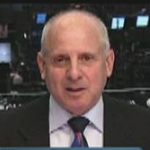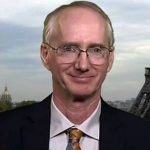“As the old models break down opportunities for new models will arise. For example, the entire education complex based on the outdated, dysfunctional “factory model” of large campuses and hundreds or thousands of students packed together is ripe for disruption.
Why not have small decentralized classes without the bloated administration and centralized curriculum–not to mention the improved security of small, decentralized groups? In my book The Nearly Free University I describe how small, decentralized “apprenticeship” groups could improve actual learning while eliminating the entire bloated administration and campus costs (lab work could be performed onsite in existing work places).
Rather than accredit the institution, accredit the student.
The unsustainably costly healthcare sector is equally ripe for disruption as demand destruction and soaring costs undermine the current model of profiteering.
Decentralizing the economy sacrifices the long global supply chains and corporate monopolies for local jobs and local supply chains. All the corporate and state monopolies and cartels that have hollowed out the economy and the social order were exploitive, parasitic and predatory as well as unsustainable, and their slide into the dustbin of history is accelerating as linear systems cascade into non-linear dynamics.
The post-Covid economy will be very different from the pre-pandemic bubble economy, in ways few anticipate: non-linear creative destruction and DeGrowth will be the dominant dynamics. Models that obsolete the old, unsustainable, dysfunctional models will blossom, and that is how civilization advances.
Maybe “shareholder value” has been the greatest con in history, a PR cover story for the greatest rise in wealth and power inequality in American history.”
LINK HERE to the Article
Disclaimer: The views or opinions expressed in this blog post may or may not be representative of the views or opinions of the Financial Repression Authority.





 06/29/2020 - Spanish: Alejandro Tagliavini – Cómo se presenta esta semana (y los Treasury)
06/29/2020 - Spanish: Alejandro Tagliavini – Cómo se presenta esta semana (y los Treasury)








